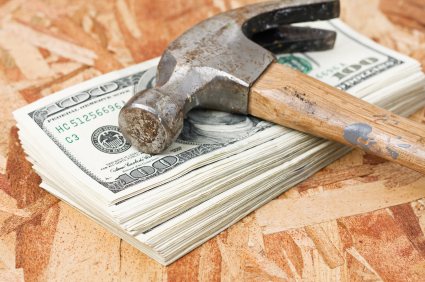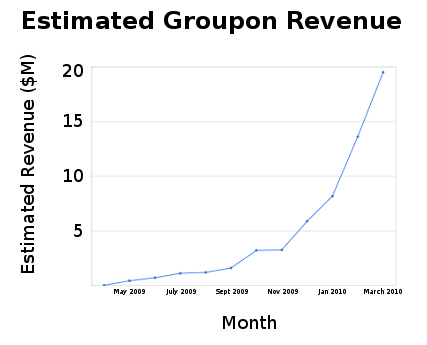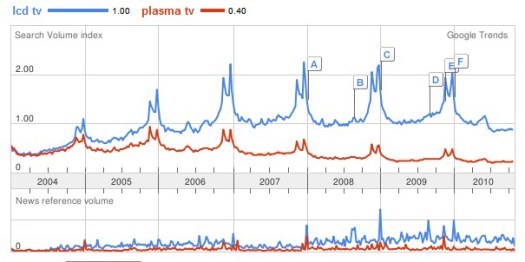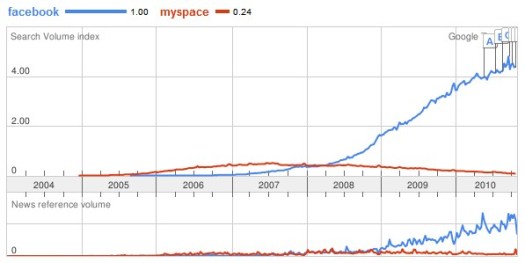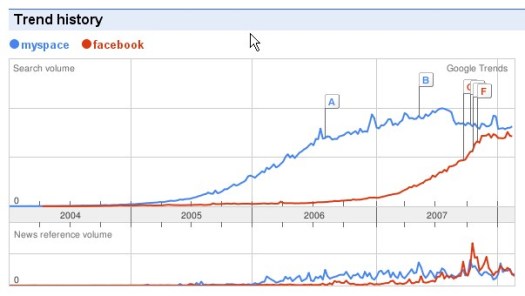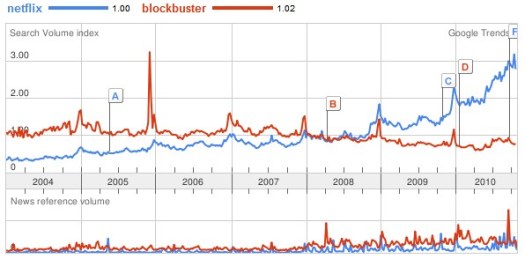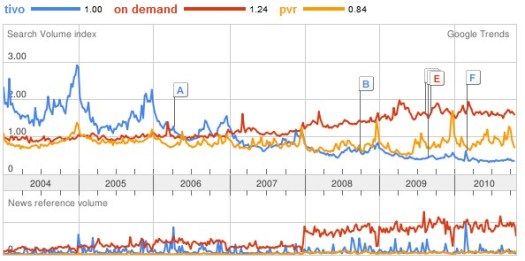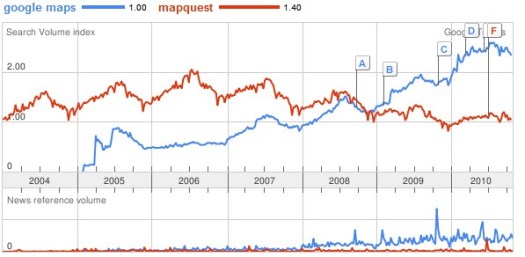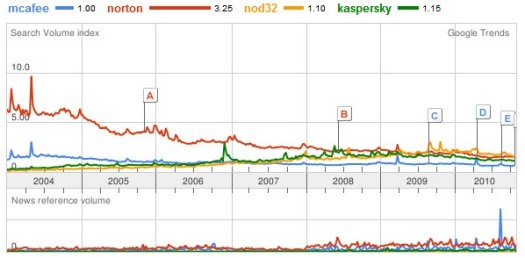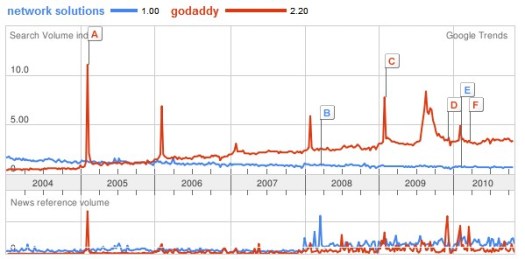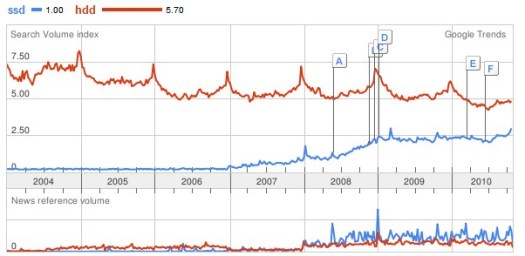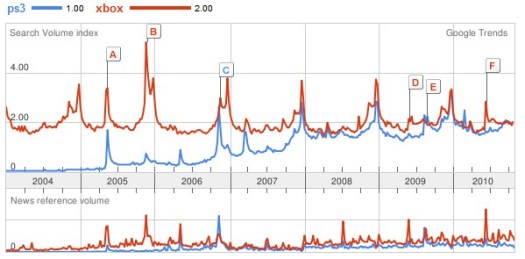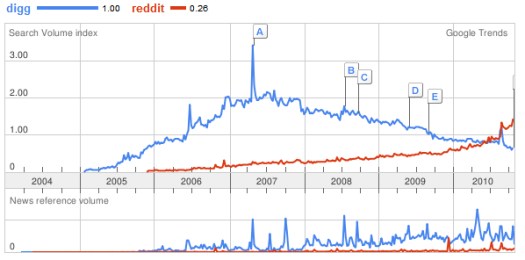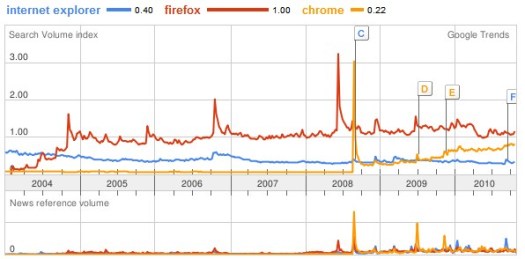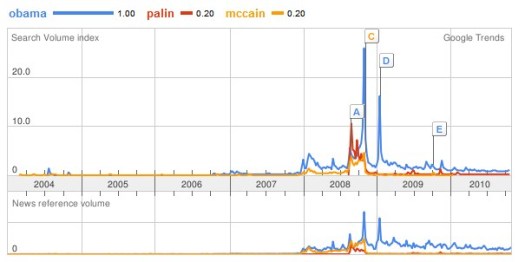Why Does a Hammer Cost $5000?
We’ve all heard the joke, that the government will pay $5000 for a $5 hammer that you can buy at your local Home Depot. Is it true? Not really, but everyone does know that the government generally pays a lot more for almost everything than if they just went to their local stores and bought what they needed. Why is that? Why would anyone want to pay so much for everything? Especially in these economic times? And even more especially for higher priced products and services where the savings are larger.
The real truth, which most people don’t really want to hear, is that we’re all partially to blame. It’s as much our fault as the governments. And once you start to understand it from their perspective, you start to understand why they do pay too much for things. It doesn’t make it better or right, it just gives you an appreciation for why things are the way they are. And more importantly, why they probably won’t ever change.
So let’s look at the purchasing process, starting from the top, for anything above the $1000-$5000 threshold. The threshold where you need to start getting approvals before you can make any purchases. Where you can’t just buy it on your personal credit card and just it get reimbursed. And before I get going, please remember that this process is the same for purchases of $10,000, $100,000, $1,000,000 or more. The only difference is that they involve more people and layers, hence more bureaucracy and costs. So if you’re going to sell something to the government for more than $1000-$5000, the process quickly becomes complex and expensive and you almost have to increase it by an order of magnitude to cover your costs.
Now I hate this next statement, but it was only after going through it while working for a few government entities in my consulting days that I was fully able to appreciate why the government (and many large companies)have their hands tied. I was always on the side of “this is crazy and bureaucracy is insanely expensive for nothing” but eventually it was explained to me in a way that I got it. So here’s my attempt to help you have pity on the poor people you’re trying to help. Oh, and realize that most of these same people don’t get this, it’s never really explained to them, so please be kind. Many just end up working for the government their whole lives so they assume this is how the world works. You can usually quickly and easily tell those that have worked for the government and very large companies their whole lives. It’s not a bad thing, it’s just a different way of working.
The first thing to remember is that the government is public facing, so they can get in trouble for anything that goes wrong (whether it was a right decision OR a stupid decision). So the general philosophy is CYOA (Cover Your Own A**). To give you an example, if you say need a computer system for your team of 10 people, and you try to do it yourself, if you make any mistake whatsoever you’re personally in trouble. In my case when I worked for a specific government entity and I tried to do this, I was told if even just one computer was infected with a virus, one wasn’t fully patched (or even if it was fully patched), if anything at all happened, I would be personally responsible. Anything at all, data being lost, a power surge, anything, regardless if it’s my fault, someone else’s, or even an act of nature!
Also if I use a vendor and someone somewhere else is cheaper, or has a better deal (regardless of the quality), I could be in trouble if anyone outside finds out. If another vendor gets hold of this info, if a member of the general public sees a better deal anywhere else, etc., they can target me because I didn’t follow the correct process and procedures. And even if I have the best deal in the world, there are still potential issues. Basically I can quickly and easily be in for a world of hurt. I would lose all government protection and could be personally liable.
So what can the government do to alleviate this mess because no one wants to personally take on that kind of risk for the little reward you get. The project is a wild success, you get some taps on your back, you might move up in your career with a small promotion (and that’s a big maybe, many departments have strong tendency towards seniority), and so on. You might get some rewards, but they won’t be anywhere near the same as the risk. What exactly are the risks? You can be fired on the spot. So immediate loss of job. You might not be able to work for any government entity again, depending on your level. You lose all your benefits. If you had a pension, that’s going to be limited from now, or gone in the worse case. You could have legal issues, even criminally charged in some cases. The risks are large, compared to at best a promotion.
Which means that most people aren’t willing to do anything bold or stick out their necks because the risks to reward ratio just doesn’t make sense. So to resolve that, the government force everyone to go through approved vendors. If the vendor is approved, you can’t get in trouble, you can’t be fired, and so on. You’re no longer personally at risk. Ok, that’s easy. And if a vendor is approved it should be because their prices are reasonable and the quality is good. But here’s where it fails and gets all wonky. As soon as you do that, all kinds of people and vendors come out of the woodwork complaining about why it isn’t them and why it’s not fair, regardless of whether or not theey’re right. So now the government has to create further processes by which you can be approved otherwise the public cries foulplay.
You don’t see this in a private or public companies, but with the government it’s different because of who they are. It’s insane how many people complain about everything! And if anything isn’t “fair” (which most things aren’t, that why there’s competition and a free market), it will generally make the papers. So this creates a lot of process and work for everyone. It’s a mess. With companies you can just ignore the public because you’re a company, but with a government entity you don’t have that luxury. You are accountable to the people.
So now a process gets put in place for selecting vendors. Of course some people still complain some more. So tighter measures get added to the process. Suddenly the only vendors willing to do all the paperwork charge crazy expensive prices for everything because it costs them an arm and a leg just to get in. And this is with no promises of any sales, that must be done after you’re approved (and costs further money). You want a $800 computer, that’s $5000. $800 for the computer, and $4200 for all the costs to get in the system and the risks of not getting a sale in the first place.
And so here we are. The poor government worker is screwed into going through all these crazy and expensive processes because they have to for their own personal safety. The very people who scream loudly that this is insane and stupidly expensive are often the same people who created this mess in the first place. If at every corner every single one of my purchases are being scrutinized and I can be fired for anything (nevermind the potential legal issues), I won’t do anything. It doesn’t make sense for me to buy anything, even if the consequences are potentially terrible. Which then forces all the crazy processes and brings us to where we are today.
I’m personally not fond of how that world works but unfortunately I do understand it and was able to navigate through it when I was a consultant (it helps to understand it). That’s also why I will never sell software to that world. The risks for a vendor are just too high. As a company you have to invest a lot of money for the chance to sell to the government at inflated prices. Sure you will make a profit, but it’s not nearly as big as most people think because of all the costs associated in selling to the government in the first place. That $5000 hammer might only result in a profit of $500, but that’s only a 10% margin with a lot of risk.
The main draw for companies is that once you’re in, it’s relatively easy to stay in. Most companies aren’t willing to go through all the effort and cost. That and the government doesn’t like to change, even if there are better and more affordable solutions, because there is a lot of internal costs and efforts in changing anything. Change is not fluid, it’s hard and has a lot of inertia. And it can be vetoed at almost any step. So if you are fortunate to get in, you can be locked in for quite some time, which is where the real benefits and profits to vendors come in. That’s the gravy boat. Not the prices you charge, but the consistent and long term almost guaranteed revenues and profits for those lucky few.
So even if you do get into the system, good luck trying to find any real decision maker willing to make an actual decision on your product or service within a reasonable timeframe! That’s the hardest thing possible, at least from my personal experience for anything more than $1000. From the government employee side, it’s much much easier to ride on a big decision for months, even years, before ever considering making the actual decision because you can’t get in trouble for finding more information and doing more research. That and being undecided generally won’t get you in trouble compared to what making a wrong decision can cost you. So what happens is that it takes a while for anyone and everyone to get into some kind of consensus and make a final decision. Eventually someone or some department has a strong enough need to push a decision, enough to champion and push it through. But until then, the sales cycle will generally be months to years. At least once a decision has been made things usually move relatively fast. That’s relatively fast, and not private world fast.
To give you a further example to contemplate about, if I’m the person in charge of a project and I decide to take a risk and do something, even if it’s only a 10% chance it can fail, an 80% we collapse if I do nothing, and a 90% chance of success (so massive chances of winning and almost no downside, and if I do nothing we fail), if it does end up failing, my career is most likely over. Not only can I get fired, I could be in the news and so on. If I do nothing and it fails because of inaction, I’m not personally to blame and still get my pension and everything else. The motivation for me to do move forward and do the correct thing is badly aligned with my personal motivations and success. In the private world, if you don’t move ahead and get some successes, you’re not gonna be around long, so the motivations are better aligned. They’re not perfect, we obviously have some issues as the Occupy Wall Street Protests have shown, but at least it’s closer.
In other words there is little incentive to take any kind of risk, even when the odds are incredibly stacked in your favor and the downside is minimal. As long as there’s any potential downsides, which there always are, then it’s against my motivation to act. Unless I’m a go-getter willing to take the risks, don’t know any better, I’m naive, or I just don’t care, the only time I’ll make any decision is when I can no longer push it off. The culture is amazingly strong to avoid making any real decisions. And you can’t blame them. What would you do if you were in that situation? And remember that most decision makers are at higher levels, so they generally have quite a number of years invested in their careers, not to mention their pension plans, and everything else that comes with being a government worker.
And that is why a hammer will cost a government entity many times more than it costs in real life. It’s a vicious cycle where you can’t blame the person who has to make the decision. Pay a realistic amount and PERSONALLY take on any and all of the risks and liabilities yourself OR follow a process which significantly increases the cost of everything and protects you in the process. A process that was created to protect the government from overpaying is the very one that causes them to pay so much! It’s a real bad lose-lose situation. And as far as I can tell, there’s no real way, and definitely no easy way, to resolve this problem. Which is why I predict the government will continue to overpay for just about everything for the coming future. Hopefully some day we can find a solution.
Permalink to this article Discussions (5)
Top 10 Tips to Write Effective Emails
I don’t know about you, but I get a good amount of emails every single day. We’re talking a minimum of about 50-100 emails a day that I absolutely have to read, generally more. This of course doesn’t include the emails that I can skim or just ignore. These are in the absolutely need to read, critical emails.
And as such, I’ve noticed over time that some emails are much much easier to read than other. There’s so much of a difference that some emails I cringe at the thought of having to read them whereas others I’m almost looking forward to reading them. We all make snap decisions on whether an email will be pleasant to read or not with just a single glance, before we even know what it’s about!
Which is why today I’m going to share with you the Top 10 Tips I’ve come up with that can improve any email. These tips will prevent your emails from being ignored, or being put on hold because the receiver is not looking forward to reading them. I’m going to give you some simple tips to improve your emailing.
1. Use sentences
I really hate to have to bring this up, but it must be said, and it must be said first and foremost. When you write an email, use sentences. The first letter of the first word of a new sentence should be uppercase. It’s important because it makes your email that much more readable. I’ve received too many emails where all the letters were lowercase. It might not seem like a big issue but it definitely makes reading any email much harder. Especially if you have longer paragraphs. Then it just becomes brutal!! If you’re guilty of this and you don’t believe me, try having someone send you a full page with no sentences. You’ll be surprised at how hard it is to read.
2. Break it up into paragraphs
You might not be writing a paper, but I can’t stress how much it helps if you break up your email into paragraphs. That is logical groups of sentences that deal with a specific theme or thought. Having a full page of text with no paragraphs is also almost impossible to read. You start to lose context. You lose focus of where you’re at. It makes it really hard. And good luck trying to respond to such an email in parts.
3. Re-read your emails
Please please please re-read your emails. Too many emails are quickly written and not even re-read once. It’s obvious when you get one of these. Nothing makes sense. The sentences don’t even make sense. It’s all over the place. Not all the time, but many times it’s hard to just understand what the other person is trying to say. Please be careful to re-read your emails if at all possible, especially if you’re asking for something. It can make a huge difference.
4. Take a minute to write a good subject title
Many times the decision on whether to read an email now or later, or if at all, is made by just reading the subject title. Now I’m not talking about writing headlines that attract people to your emails like spammy emails do. I’m talking about writing subjects that will make sense to the person receiving the email. For example, if your email is about a company meeting, then make sure to reference that in the subject. Basically make it obvious to the person receiving it what the email is about because it really helps. Not only that, but it also makes looking for emails later on that much easier. What, you mean the email you sent me about our decision to use Malbolge as our programming language, let me see if I can’t find it. There’s nothing here, I’ll have to do a full search, give me a few minutes to find it because there’s a few dozen emails that appeared in the search results. Ugh.
5. Keep it short if possible
Unless it’s a personal correspondence, you generally want to keep your emails as short and sweet as possible. It’s great that you can write amazing poetic and elegant verses, but when it comes to business please keep it as simple and as much to the point as possible.
6. Be careful of the tone
Unfortunately with email, it’s very easy to say something one way and have the other person take it in a completely different way. Tone is something that’s easy to do with a phone call but hard to convey by email. This is why you sometimes see emoticons (more for personal emails), so that you can make sure the person correctly interprets your tone. Whether or not you use emoticons, because in many situations they aren’t appropriate, be very careful what you write so that it cannot be interpreted in a wrong way.
7. Make it respond-able
This goes back a lot to tip #2, “Break it up into paragraphs”. Basically if you want someone to reply, try to break up your email into chunks, chunks that make it easier for the person to reply and respond to. For example avoid writing 10 questions in one paragraph, break each question into it’s own line, or something like that.
8. Avoid background images and pictures in your signature
They may look cute on your computer, but it’s much harder for other people to read. That and not all systems that read email are able to display them correctly. On top of this they sometimes make your email much harder to read. I’ve seen some background images that made reading the text virtually impossible until I copy & pasted it out into another application. If someone has to do this, odds are they won’t read it.
9. Correctly setup your from email address
A lot of people forget to setup their from email address, and this is unfortunate. The reason you want to set this up is to let people know who is sending the email. Sure it’s cool to see the email address, but sometimes it’s even better to have a name. I may not know that myCoolEmailAddress23423@landlordmax.com is your email address and may therefore ignore it, or assume it’s unimportant. Instead let me see your name so I don’t have to make the association between you and some random email address.
10. Avoid attachments
If at all possible, put the text in the email itself. As cool as it is to write a Word document, a PowerPoint presentation, a PDF, and so on, if at all possible please put the content directly in the email. The odds of someone reading your email quickly decrease if they have to open up attachments. It’s one more step that’s annoying, especially if there’s no reason for it. And there’s also the possibility of viruses because how can I trust your attachment is safe for my computer. As well, if I ever have to look up what we said, I can’t do a search through the file attachments. This means that the only way I can find your message is by opening the messages and attachments one by one. That’s brutal!!
Bonus Tip 1: Don’t assume your email will remain private. Yes, all emails are suppose to be confidential, but the unfortunate reality is that this isn’t always the case. Therefore be attentive and careful about what you write because you never know where the email will end up. In most cases it’s ok, but you never know.
Bonus Tip 2: Not all emails are urgent. I can’t stress this enough. I know of a few people that mark almost all of their emails as urgent. This is actually quite annoying. Not only that, but have you ever heard of the story of the boy who cried wolf too many times? That’s what will eventually happen.
Permalink to this article Discussions (5)
The Headline in Japan You Won't Hear About
“Millions saved by excellent engineering and building standards”.
Unless you’ve been hidden in a cave for a while, you’ve surely heard about the recent and major earthquakes and tsunami in Japan. Thousands have died (at this time it’s looking upwards of 20,000) and there’s little doubt that the number will only increase with time as more are found. However most of these deaths appear to be from the tsunami and not from the earthquake. Not that many people died from the earthquake itself. Had there been no tsunami, Japan would’ve largely come unscathed in comparison. In almost any other country the death toll from such a powerful earthquake alone would’ve been massive!! It would most likely have brought the city I live in to ruins!
Which leads me to the headlines you won’t read about: “Millions saved by preventative engineering”, “Millions saved by good building standards”, and so on. Basically how many people’s lives were saved because the Japanese know about the dangers of earthquakes and take proper precautions to survive them?
How many buildings in Japan collapsed due to the earthquake (not the tsunami but the earthquake itself)? Remember, this is one of the top 5 earthquakes ever measured! Other countries have been brought to rubble with far smaller earthquakes.
Downtown Tokyo is still standing, and Tokyo boasts some pretty large buildings! Why is that? How did these large buildings not collapse in one of the world’s largest earthquakes? Because they planned for them! They designed them to sustain large earthquakes One of my favorite videos (shown above) of this shows how much sway the skyscrappers experienced during the earthquake – although it might not look like that much, it’s massive when you consider the scales.
In any case, had they not been properly designed and built, can you imagine the devastation in Tokyo? What would’ve happened if buildings started to collapse? The death toll could’ve easily been in the millions! And you won’t see these headlines anywhere. You only see headlines when something goes wrong, not when prevention saved millions.
It’s the same with a flu pandemic. If a vaccine was released in 1918 before the virus had a chance to kill millions, it would never have made the news and we wouldn’t know about it today.
People are generally only interested when things fail, not when they work. And that’s why you won’t hear or read any headlines about how many millions were saved due to good building codes and building standards in Japan. As important as they are, you just won’t hear about them. But thank god they exist!
Permalink to this article Discussions (1)
Why do Some Companies Just Not get Customer Service?
I can understand that customer service might not be as important if you’re a company working on volumes with extremely small margins, but if you’re a “service” company, such as a restaurant, the experience your customers receive will ultimately affect the amount of business you generate. Such a simple concept, do right by your customers and they will come.
Which is why it baffles me when restaurants get this completely wrong. To show what I’m trying to explain, I’ll share with you the terrible experience I had recently eating lunch at Pizzadelic (a local Pizza restaurant). This includes having someone else’s bill in my pizza crust!
But before I begin, let me just start by saying this wasn’t my first lunch at Pizzadelic, I’ve eaten there at least a dozen times in the last year. Not counting the references I gave (at least until now), the total lifetime revenue of myself as their customer was going to be in the thousands of dollars (at least two to three hundred a year for who knows how long, not counting referrals).
Well I had an experience that really soured that relationship. I will no longer be going to Pizzadelic unless I have no choice. It wasn’t the mistake that happened that one day, it was how I was treated in regards to it.
But I’m getting ahead of myself, let’s go back a little bit. And before I even start, I’d like to point out that I went to the restaurant outside of the lunch hour rush, so it’s that much less excusable.
When I first got there I was seated right pretty quickly. However it took a full 15 minutes for a server to come see me! That’s not to order, that’s just to see if I even wanted a glass of water. During a lunch rush I could see this, but after the rush there’s no reason for that long of a delay when the place is fairly empty. It’s not the end of the world, and if that was all that happened you wouldn’t be reading this now. However as it turns out that just set the mood for what was to come.
Eventually they did see to me and the server took my order to the kitchen. Then I waited, and I waited, and I waited some more. At least 30-45 minutes went by before they brought me my pizza (normally it would 10-15 minutes). Again, remember this is after the lunch rush.
Hungry I started to eat. These pieces of pizza are very large, as big as a full sized serving plate (deli style pizzas), so you generally use a fork and knife in this restaurant to eat your pizza. A few bites in I noticed that I was cutting a piece of paper below my pizza. This caught my attention because in all the times I’d eaten the pizza there I had never seen a piece of paper in the plate. So I just assumed it was paper from the oven that they forgot to remove.
As I lifted my pizza I came to the quick realization that it wasn’t a piece of paper for the whole pizza, but rather a small piece of paper. As I pulled, I quickly saw that it was somewhat embedded into the pizza crust. I pulled on it and then looking at it realized it was a bill (the paper was very oily from the pizza so it was harder to read). That was odd? Maybe it was just my order bill that had fallen. But no, it was someone else’s bill!!!
I quickly called over the server, and they of course were apologetic. The manager then took the pizza to the kitchen and re-ordered me a new one.
And here’s where it went sour. Here’s where they had a chance to really make me into an adoring customer. They had two options. Get me a pizza ASAP or just order another replacement pizza the standard way. Give me some kind of compensation or ignore the whole event.
Due to the fact that I’m writing this article, they obviously picked the later of the two. I ended up waiting at least another 30 minutes before my replacement pizza came. They could have done a rush order, etc., but nothing. Already being upset by the bill that’s not mine in the pizza dough didn’t help. Having to wait a long time to be served initially didn’t help either. Having the first pizza take two to three times as long to cook didn’t help. Nothing was helping me feel good about this particular visit.
Once I had finished the new pizza, it took the server a good 15 minutes to come clear my plate from the table. At this point, there was probably as many people in the restaurant as there were servers, so having to wait 15 minutes after being done eating is a long time.
And then came the bill. Remember at this point I’ve had to wait many times longer than should be necessary (close to 2 hours for a pizza), and the restaurant is not in the middle of a rush. Did they comp the pizza? No. They charged me the full amount for the pizza. Yes. Nothing to compensate for having been given someone else’s bill in my pizza. Nothing at all. Not even a we’re sorry about that. The server just came over and gave me the bill. And if you think it’s just the server, the manager was also aware of the whole issue. Nothing.
If they valued their customers and the total revenues they can bring over their lifetimes, especially for a company in the service industry, they sure didn’t show it. Had they treated me right I would’ve assumed this was a one time event and I was just unlucky. Things happen. But the fact that they made me wait forever for a second pizza, took their time to wait on me (knowing full well I wasn’t a very happy customer), and then didn’t even offer to give a reduction, a voucher, or comp on the meal, well that really shows me how much they value their customers.
Because of this I will avoid going there again. I’ve now also written about it on this blog which means I’ll probably show up on the search results for Pizzadelic. If it’s anything like my Telus adventure from a few years ago, I’ll be near the top of the search results for their website. How many customers, and hence revenues, will it affect? Treat your customers well and you’ll make lots of money, even when you screw up. The folks at 37Signals recently showed the world how to turn a bad event into a great PR. Nobody’s perfect, we all make mistakes. The key is how do you handle these situations?
For example, last week we had someone complain to us that the CD we shipped out to them was defective. We do our best to have a zero defect rate, we even have an automated procedures to test all CD’s before they go out. But unfortunately something happened. Maybe we made a mistake, maybe the CD was broken along the way during the shipping process. Who knows. We don’t question why or what. All we hear is that our customer ordered something and it didn’t work. Who cares where the responsibility lies because in their minds it’s our CD that didn’t work. It doesn’t matter if it was broken after it left our door. It doesn’t matter if the CD manufacturer we use might have made a CD of slightly lower quality. It doesn’t matter who’s fault it is to them. From the customer’s point of view they ordered something from us that doesn’t work so it’s up to us to fix the issue.
Our response in that case, as we’ve always done, is to re-ship the CD. However when this happens we ship it by express mail. You see normally we ship all our CD’s by ground shipping which can take anywhere from 1-4 weeks (generally it only takes 1-2 weeks). We’ve chosen this route for numerous reasons, including the fact that our customers don’t need to wait for the CD to arrive to start using the software, and that it keeps their costs down. In any case, if something goes wrong, we don’t ask why or blame the postal system. We ship another CD right away, and we ship it express. It will be there within a couple days, even if they don’t need it to start using the software. We assume the responsibility and we make right by them.
We’ve also been known to do other things to right any mistakes we’ve accidentally done. And you know what, more often than not we get glowing emails from these customers. In many cases they really respond positively saying how well we treated them and that they will let everyone know about us. We’ve even gotten testimonials this way! Word of mouth really helps to grow your business.
Unfortunately for Pizzadelic, the way they handle errors is going to lead them to lose customers. Not just directly, but as of today they will also be found on Google for negative experiences. It’s not that hard, make right by your customers and your business will prosper. Never forget that, especially if you’re a service business.
Permalink to this article Discussions (1)
Groupon – Back to Crazy Company Valuations
Just when I thought we were finally over the craziness of obscene IT company valuations of the 2000 dot com bust, I see Groupon’s latest valuation. $15 billion dollars for Groupon? That insanity! And although Groupon isn’t the only one getting ridiculous valuations, it’s definitely one of the worse along with Facebook’s $50 billion valuation from Goldman this month.
So let’s look at some numbers. And I’m not even yet talking about revenues or financials, let’s just look at the recent valuations. There’s no way the company’s growth is in line with the growth of its valuations.
In April 26, 2010, it was valued at $1.2 billion. This is when they said they expected to make $100 million for 2010. Shortly after this, Google offered Groupon somewhere between $5 billion to $6 billion, which they turned down. This month, based on their latest financing round of $950 million, Groupon has a valuation of $15 billion. Yes, that’s right $15 billion!
All this from a company that was spun off as recently as 2007, that only really started its web presence in late 2008. Now I’m not saying you can’t make large amounts of money in that amount of time, but creating $15 billion dollars of value, it’s not very likely.
But before I get too ahead of myself, let’s look at some concrete numbers, just to make sure I’m not the one who’s out to lunch here. Initially Groupon estimated it would make $100 million for 2010. It now appears that this number needs adjusting and they will claim upwards of $350 million in revenues. This is really good news, and it does explain why there’s so much hype for this company. My congratulations to Groupon for that kind of growth, it’s amazing!
But before we get ahead of ourselves, we need to realize that not all of Groupon’s revenues is theirs. Remember that Groupon has to pay up to 50% to the merchants. That means that their real revenues are probably closer to $150 million. In other words, the stated revenues are highly inflated, because although it’s revenues it’s not really real revenues. Unfortunately that’s going to help them get better valuations, especially if they become a publicly traded company. Most people just aren’t going to take the time to determine exactly how a company earns it’s revenues, they just quickly look at the numbers (if that, many just go with brand names or the hype associated to the a company). If you’re interested in more detailed analysis of Groupon’s revenues, Paul Butler has written a really good article. His analysis is pretty thorough and I agree with his findings.
In any case, ignoring the issues with actual revenues, if you graph those revenues based on the available information, you get a revenue graph that pretty amazing (see below – source: Paul Butler). The growth curve is definitely something to write home about!
But even with that kind of growth, are the valuations worth it? Can it sustain that growth over time? Will the growth slow as the company grows? The bigger a company gets, the harder it is to maintain high growth levels. It’s much much easier for a $1 million dollar company to double in size than a $1 billion company. How often do $100 billion dollar companies double in size?
But most importantly, what is the premium paid for that growth today? In other words, how long do they have to continue that growth to get a reasonable valuation?
The best way to find out is to calculate the premium, for example using metrics such as P/E, and even that won’t really work because we don’t have enough information about Groupon (it’s a private company). But let’s go ahead and do a close enough comparison anyways, let’s do a P/R (Price / Revenue). Assuming my numbers are correct, that’s a P/R of about 43 based on total revenues. However if I make an adjustment to use their real revenues, the P/R skyrockets up to about 100.
Although we can’t do an accurate P/E calculation, we can do a quick ballpark calculation. Assuming 50% of that revenue goes to the merchant, we’re left with $175 million of revenues to make a profit from. Assuming another 50% for operating expenses (meaning a 50% profit which is very high and generous), that leaves us with $87.5 million in profits. Therefore as a quick ballpark, we’re looking at a P/E of 171 for Groupon!!! Is it just me, or is this P/E value all too reminiscent of the Dot Com Boom and Crash of 2000? And that’s just one metric. By the way, if we use a 35% cut rather than a 50% cut for the merchant, we still get a P/E calculation of 132. This is just as insane as 171.
And if metrics aren’t your cup of tea, maybe we can do direct comparisons of Groupon to existing companies with similar market valuation? Here’s a small list of companies valued similarly to Groupon.
| Company | Valuation | Revenues |
|---|---|---|
| Adobe | $17.03 billion | $3.8 billion |
| Best Buy | $13.93 billion | $49 billion |
| Staples | $16.83 billion | $24.2 billion |
| Symantec | $13.83 billion | $5.98 billion |
| McGraw-Hill | $11.54 billion | $5.95 billion |
| Groupon | $15 billion | $0.350 billion |
Do you know what the first thing I noticed in this list, not one of these companies has revenues below a $1 billion other than Groupon, or even several billion! Although I have to admit I haven’t done the most thorough search, I don’t think you’ll find many, if any, stocks with these kinds of valuations in the public market. The numbers just don’t make sense.
The premium on Groupon is such that you’re paying for it as though it’s already a very large and mature company. That is, the built-in premium on the company is so large that it would have to continue the same level of growth for at least a decade or more. The odds against that are extremely low.
I also believe every single company on the list above is worth more than Groupon. But don’t take my word for it, let’s look at another comparison. Let’s look at the valuation to revenue ratios. From our list above, the best (largest) ratio (other than Groupon) is from Adobe at 4.48. Groupon’s ratio is 42.85! That’s 10 times more than the best ratio on that list. If you can find a company that has even close to that ratio, that’s listed on either the Nasdaq or NYSE, then please let me know!
Using the 4.48 ratio, which is the best ratio (highest premium), that would make Groupon worth $1.5 billion. If we use the lowest ratio (Best Buy with a 0.28 ratio) that would make Groupon worth $98 million. Which means that Groupon should be valued anywhere from $100 million to a max of $1.5 billion according to this list. I agree the sample size isn’t very large, but this is a fairly common sample of companies at these valuations. As you get to valuations of this scale, the premiums start to diminish. It’s understandable for smaller companies that can grow faster, but at these scales it’s much more difficult to get similar growth rates for larger companies.
Anyways, do any of these companies really compare to Groupon in terms of value? If someone gave you the option of getting $x of stocks in only one of these companies, and you had to wait at least 3, 5, or even 10 years to sell, which company would you select? Is Groupon worth 10 times as much as those companies? I personally don’t think so. Do you?
Permalink to this article Discussions (1)
Common Wisdom Isn't Always Right
Today’s post is going to be very different than my normal posts, I’ve decided today to write about a random observation I made some time ago. Which leads me to the main topic of this post, and that is to question what we take for granted. Just like in my previous post where I suggest that having a job is NOT necessarily safer than being an entrepreneur, today I’m going to give you another example why it’s important NOT to take conventional wisdom as fact. Especially as an entrepreneur!
Conventional wisdom says that violent video games cause people to become more aggressive and violent. And if you think about it, it does seem to make sense on the surface of things. But is it really true? Sure there are examples of people who played violent games that did become violent, but I’m sure I can find examples of people that are into other very non-violent activities and hobbies that did just as violent things. I will wager that somewhere there is a quiet and shy librarian or butterfly collector that has had some kind of violent outburst.
The question isn’t if there are examples because you can find examples for just about anything, especially with the internet and YouTube these days. I can probably find several examples of people that lost their pinky finger and have made more than a million dollars starting their own business. I’m sure I can find examples of people who purchase DVD players in December that have are balding prematurely. You can almost always find at least one or two examples of anything if you look hard enough. Just because there is an example doesn’t mean it’s related.
The bigger question is if there’s a correlation. Once we have a correlation, we can then investigate if there’s a causation. For example, as the number of pirates have decreased, there has been an increase in global warming over the same period. Therefore is the lack of pirates is the cause of global warming? Since the 1950s, both the atmospheric CO2 level and crime levels have increased sharply therefore CO2 causes crimes. In both of these cases it’s obivous that there is a correlation but it’s also obvious that the correlation doesn’t causation. That is to say that one cased the other.
Back to our question, do video games actually make you more violent?
But before we answer that question, let’s look at sports. Do sports make you more violent? Or more precisely does watching sports make you more violent? Conventional wisdom here would say no, that watching sports shouldn’t make you any more violent. How could watching sports make you more violent? If anything it would make you less violent than playing sports.
Let’s be even more specific, since sports can include a lot of different sports, some more violent than others. Can watching football make you more violent? What about basketball or hockey? What about soccer?
If you answered no, then let me ask you another question. Why was there such a police presence at the World Cup? Why were they needed? Why were they prepared long in advance? Why is that after most major championship games there’s generally a strong police presence? Why are they almost every time? Why are the fans so violent after the events? In other words, why are there riots after many major sporting events?
With that in mind, let me ask you this. Was there a police presence at the E3 Expo (Electronic Arts Expo)? This is after one of the biggest, if not the biggest, gaming event in the world. The one where all the biggest game titles are released. Where people get to try and play the latest games. The one with an attendance of over 45,000 people.
If video games have a tendency to cause people to become violent, shouldn’t there have been at least one major incidence? One riot? Shouldn’t there at least be some police presence? In the 10 plus years of the event, and correct me if I’m wrong, I’ve never heard of any major issues with violent outbreaks. I’ve never heard of the event requiring any kind of police presence beyond what’s standard at events of that size.
Which leads me back to my original observation and question, do video games make people violent? If your answer is still yes, then I cringe at what watching sports events do to people.
So if someone ever tells you that’s how you should run your business because that’s just how it’s always done and everybody does it that way, don’t assume it’s always right.
Permalink to this article Discussions (1)
Entreneurship is Safer Than a Job
Many people will argue that a job is much more reliable and safer than being an entrepreneur, but they’re wrong! The worse part is that they’ve never really taken more than a second to actually look at the differences, they just assume it’s better. The reality is different. Do you remember that old saying “don’t put all your eggs in one basket”? Well we’ll get to that shortly, but in the meantime just remember that a job means you’re putting all your financial revenues in one single basket, your employer.
But before that, let me give you an example of just how unsafe a job really is. Have you ever been laid off? Has your project ever been terminated early? Have you ever worked for a company that’s been downsized? How about a company that’s closed? What about a company that closes down your department? A company where the business model no longer works? A company that closes your location?
And it’s not just at the company level, what about on a personal level. Have you ever worked with a difficult boss? What happens if you make a bigger mistake one day? What happens if you get sick? What if your boss is not a good person? What about co-workers? The list goes on.
With a job it’s generally you have a job or you don’t have a job. It’s on or off. You don’t have a partial job, you have one or you don’t have one.
An entrepreneur however isn’t so black or white, it’s more of shades of gray. In other words it’s rarely one or the other. You generally have some revenues, some customers. The company makes some money. Unless something catastrophic happens, which affects both the employee and entrepreneur the same way, you generally see an incline or decline in revenues over time. It’s not overnight. You don’t come in one morning to see your business completely come to a complete halt without any warning.
In other words, as an entrepreneur you don’t have all your eggs in one basket. You have multiple clients, they’re just called customers, whereas as an employee you have only one customer, your employer. If you lose that one customer, you have nothing. Zilch. Nada. The big goose egg. It’s over. As an entrepreneur a single loss of a customer isn’t nearly as catastrophic as it is for an employee. Not that you want to lose customers, but the difference is that not everything is tied to one and only one customer.
So let me ask you again, which is safer, being an entrepreneur or being an employee?
Permalink to this article Discussions (2)
Are Shorter Headlines Always Better?
It’s generally assumed that shorter headlines are better. Not just a little bit better but significantly better. The reality is that it’s necessarily not true. Shorter headlines are indeed better, but just marginally better. The difference between a 3 word headline and a 13+ word headline is not even 10%!!
A study of 2500 ads done in 1939-1940 by Harold J. Rudolph through the Saturday Evening Post found that the content of the headline is the major element that determines the effectiveness of a headline, not it’s length as is generally assumed. The table below shows the difference in the number of people who read the headline based on the number of words in the headline:
.
| Number of Words in Headline | Percentage of People who Read the Headline |
|---|---|
| Up to 3 | 87.3% |
| 4-6 | 86.3% |
| 7-9 | 84% |
| 10-12 | 82.5% |
| 13+ | 77.9% |
Therefore what we should learn from this is that if you have to add extra words, do so as long as it makes your ad more effective. A shorter headline with poorly chosen words is not as good as a longer headline with well chosen words. After all the difference in effectiveness isn’t even a full 10%. It’s definitely not as much as we’re generally lead to believe.
Permalink to this article Discussions (2)
How Accurate Were My 2009 Google Trend Predictions?
For those of you who aren’t familiar with Google Trends, it is a free service by Google that lets you determine the trend of different keyword searches over time, and ultimately compare them against together. This is extremely powerful in that it can really help you predict the future, in many cases it’s so accurate that it can be scary! So today I’m going to take the time and revisit my predictions from June 8, 2009 (about a year and a half ago) when I wrote Can Google Trends Predict the Winner? In case you’re wondering, the answer is yes it can. It’s that accurate!
So let’s look at each prediction one by one to see what’s happened since:
LCD TV versus Plasma TV (obvious prediction)
In 2009 I predicted that plasma TV’s were on their way out. Clearly this trend is continuing today.
MySpace versus Facebook (scary good prediction)
This is one of my favorite predictions, partially because I predicted this as far back as 2007 when Facebook and MySpace were neck in neck, when there was no clear winner yet. When I initially wrote my ebook How to Generate Traffic For Your Website I used the example with data up to early 2008 (first edit). When I re-edited it in 2009, I kept the same graph (shown below) because it was even less clear who the winner was going to be. By 2009 it was starting to become pretty obvious. Of course today there’s absolutely no doubt.
Netflix versus BlockBuster (scary good prediction)
By mid-2009 you could see a downward trend for BlockBuster and an upward trend for Netflix. Based on that, I predicted that Netflix would win over BlockBuster. I used BlockBuster because it was the biggest movie rental company by a large margin.
It turns out that prediction was all too accurate. In September of this year (2010) BlockBuster filed for Chapter 11 Bankruptcy protection. And Netflix is showing no signs of slowing down, they’re actually showing some pretty solid growth as shown below:
In case you’re wondering, how could you have leveraged this information and made money from it. Well the answer is pretty easy. For one you could have avoided losing (er I mean investing) any money in BlockBuster stocks and bought Netflix stocks instead.
For example, if you invested $1000 in Netflix in June 2009, you would’ve paid about $40/share, acquiring 25 shares. Today those same 25 shares would be worth $168.15 each, giving you a total of $4,203.75. A handsome profit of $3,203.75!! You would have made 400% on your money!
If you had invested that $1000 in BlockBuster, at the going price of about $0.65 a share in June 2009, you would now have a total share value of $107.69. You would have lost of the tidy sum of $892.31! In other words you would’ve almost all of your money!
Of course this is a drastic example, for sure not all predictions are that drastic. But it sure does make me think, especially when almost all of my predictions using Google Trends turned out true!
Tivo versus PVR versus On-Demand (ok prediction)
Although harder to see because the changes aren’t as drastic, my predictions from a year and a half ago appear to have also come true here as well.
Tivo continues to be on the decline. In terms of investments, it doesn’t quite work out. It just happens that Tivo had an upswing in stock price in June 2009, going from $7 or $8 a share for a long time before to a high of about $11.50 for the month of June 2009, then falling to a consistent average of $10.50 for many months. After that it did go as high as $18.49 for a short burst, then back below the $8 range until just recently having jumped up back up to exactly $11.50 today! So had you invested in June 2009, you would have made or loss nothing, you’d be exactly where you started. Today, I would still advice against investing in Tivo stocks, unless you want to short the company that is.
For On-Demand, it appears to have stalled somewhat. It did grow from mid-2009, but in mid-2010 it seems to be stalling. If I were a cable network executive, I’d either be pulling back or pushing hard. Leaving things as they are probably means that On-Demand will slowly fade away. Right now it can go either way, but my suspicion is that we’ve seen the peak and it will start to decline because cable companies are notorious for their slow speed of execution.
For PVR, not much has changed. It still too static to predict. If anything there seems to be a small upwards trend, but it is very small. Nonetheless I’m still very much on the fence for PVR. It’s still too early to predict which way it will go, only that it will still be here for some time.
Google Maps versus Mapquest (good solid prediction)
In mid-2009 Google Maps had just passed Mapquest. It was also pretty apparent that Google Maps was growing whereas Mapquest was slowing down. Well today it’s clear that Google Maps has beat Mapquest. The only real question now is if Google Maps has peaked or if it’s just hitting a temporary peak.
Norton versus McAfee versus Nod32 versus Kaspersky (half accurate prediction)
I predicted that Norton and Mcafee would continue to lose marketshare and Nod32 and Kaspersky would continue to grow. Unfortunately the trend graph is very hard to read because Norton had such a strong lead in the past. However if you take out Norton from the graph, it’s a lot easier to see the differences.
That being said, it’s still evident that Norton and Mcafee are declining (hence the mostly accurate prediction). However what’s unfortunate is that Nod32 and Kaspersky seem to have peaked. I then looked at “antivirus” and it seems to also be on a decline as a whole, which is intriguing. Therefore I don’t know if this is related, but it would be interested to follow-up and see what’s going on. Is it the industry in general that’s on a decline? Is it the economy? Or are there other upcoming antivirus companies replacing them? I don’t know and I just don’t have the time to research it myself, but I would definitely be interested to know.
Network Solutions versus GoDaddy (good and easy prediction)
As predicted, the trend continues. Network Solutions continues to decline and GoDaddy continues to grow. I wish I could compare investments made in both of these companies but they aren’t publicly listed. In any case, I predict Network Solutions will continue to decline with time and GoDaddy climb.
SSD versus HDD (good and on track prediction)
As some of you know, I’m quite biased when it comes to SSD versus HDD. I’ve been an SSD convert since early 2008. I currently have an Intel X25-M Gen2 SSD drive in my laptop. I will never go back to HDD’s. The difference is just staggering! Once you go SSD you can never go back to HDD!
Anyways, based on the Google Trends in mid-2009 I predicted SSD’s would eventually overtake HDD’s and eventually become the standard. Not just because I’ve seen the difference firsthand, but also because of the Google Trends charts. Well it appears that this trend is definitely continuing. I predict it’s only a matter of time before we see SSD’s overtake HDD’s. And once that happens, it will stay that way forever. The only thing holding back SSD’s right now is pricing, there’s still too much of a premium that most non-techies are willing to absorb. But as the prices go down, the trend will only increase in speed.
New Predictions
PS3 versus XBox
Based on the above Google Trends, I believe the PS3 is going to become the dominant gaming console in the next 1-3 years, at least until a new “disruptor” console comes along (generally every 5 or so years). And in case you’re wondering, I tried a few variations of the keywords XBox, Xbox 360, Playstation 3, and so on, and basically kept the main two keywords used for searches on these two consoles.
Digg versus Reddit
Looks like Digg has lost it’s way and is going to just keep on losing. Whereas on the other end of the spectrum you have Reddit which seems to be growing even faster since Digg’s recent issues.
Internet Explorer versus Firefox versus Chrome
We’ve all heard news about IE (Internet Explorer) losing dramatic marketshare to Firefox. But how many of you have heard about the latest web browser from Google called Chrome? It’s first official public release was Dec 2008, less than 2 years ago. Although new, it seems to be growing by leaps and bounds while the other two browsers are either stagnant or losing marketshare.
So how do searches on Google actually transfer to marketshare? Quite well it turns out according to Engadget and Ars Technica. Their data is pretty consistent with what we find on Google Trends. IE is consistently losing marketshare, which is why Microsoft is pushing really hard to get IE9 out. This is their attempt at getting back some of their old glorry from the IE versus Netscape win. Firefox seems to be pretty much stable right now, neither losing or winning any real marketshare. And then there’s Google Chrome. According to StatsCounter, Chrome usage has tripled in the last year! Yes, that’s right, tripled!
So what does this all mean? Well unless there’s a significant improvement in either Firefox or IE, then my prediction is that Google Chrome will become a major player in the browser wars. I wouldn’t be surprised if it takes first or second place sometime in either 2011 or 2012.
Conclusion
Although I’ve just compared a few items, the potential is endless! And from what I’ve seen, the accuracy can be surprisingly good. So good in fact that Google has created Google Flu Trends.
Basically what they’ve learned is that the trends for searches about the flu mimic the actual real volumes of flu activity. The biggest advantage with Google Flu Trends is that it’s possible to get the data quicker than the CDC. Yes, that’s correct! The CDC takes about 1-2 weeks to compile the latest data whereas Google can publish it in real time! The idea is that if there is a major spike in flu searches, Google can warn the CDC 1-2 weeks before they even know about a pandemic!
But what about other diseases? I quickly searched for stomach flues and gastros and the data seems to indicate yes. That being said, I will admit I didn’t search very hard to confirm this, but I do suspect it would be very accurate. Scarily accurate!
My next big leap, which I haven’t taken or tested yet, is can Google Trends be used to predict elections? I highly suspect the answer is a resounding yes. I just took a snapshot of the Google Trends for the bigger candidates of the 2008 US presidential race and it clearly shows Obama leading his opponents in searches. Of course this is in retrospect, so it’s very easy to say after the fact. But what about the next election?
I can only imagine what else is possible. If you have any ideas, and especially if you find interesting trends and comparisons, please let me know. I look forward to seeing what you find!!
(good prediction)
Permalink to this article Discussions (2)
How To Really Know if Your Idea is Good or Bad
You’ve just come up with what you think is an amazing idea. A new business that will change the world. A new business that will make you lots of money! You quickly go out and share your idea with your friends and family and they confirm how good the idea is. Everything looks great! The world is perfect.
Then you set off to build your idea. You spend hours, days, weeks, months, maybe even years building it. Then you release it. Nothing happens. The streaming hordes of customers you expected don’t materialize. You can’t get any sales other than that first sale from you mom or dad, but that’s about it. Why? What happened? Everyone confirmed it was a great idea when you shared it with them…
The unfortunate reality is that almost all the time your friends and family will confirm your idea is good, even when it’s not. Firstly most people don’t want to rain down on your excitement. And secondly most of us have learned that delivering bad news is not fun, especially when it’s really not necessary.
So what I suggest, instead of JUST asking your friends and family if your idea is good, ask them if they would also purchase it.
Again, same as before, most will say they would. That’s good! That’s one step further. But don’t stop there. Many people will say yes but would never actually purchase it.
The next step is to confirm your idea by asking if they will purchase it now!! You’ll be surprised at how quickly things change once you ask them to commit real hard earned dollars (excluding your parents of course). Basically as soon as you ask someone to pay money instead of just giving positive wishes, you get their real views on whether or not you’ll succeed.
If you can’t get anyone to commit money to your idea then it’s very likely not a good idea. Maybe it’s too specific and you don’t have like minded individuals, but if that’s the case should you be pushing so far out of your core competencies in the first place. For example, if you don’t know anyone or anything about the kennel business, then should you really start a kennel business?
Getting back to the topic at hand, the only real and sure fire way to tell if an idea is a good idea or not is to ask people to pay for it. Not just if they would pay for it, but to actually ask them to pay for it. Your results will tell you just how good your idea really is!
Permalink to this article Discussions (4)
| « PREVIOUS PAGE | NEXT PAGE » |

